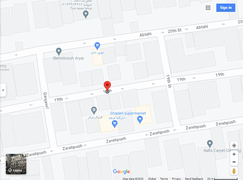Bromelain- and Silver Nanoparticle-Loaded Polycaprolactone/Chitosan Nanofibrous Dressings for Skin Wound Healing
Bromelain- and Silver Nanoparticle-Loaded Polycaprolactone/Chitosan Nanofibrous Dressings for Skin Wound Healing
cutaneous wound is caused by various injuries in the skin, which can be wrapped with an efficient dressing. Electrospinning is a straightforward adjustable technique that quickly and continuously generates nanofibrous wound dressings containing antibacterial and anti-inflammatory agents to promote wound healing.
Digging deep into molecular pathways: Investigating the effects of 9S-HOD on leukemia cells using a systems biology approach
Digging deep into molecular pathways: Investigating the effects of 9S-HOD on leukemia cells using a systems biology approach
Acute myeloid leukemia (AML) is a malignant disorder characterized by a poor prognosis. Current therapeutic approaches include chemotherapy, steroids administration, and blood transfusion.
Considerable Effects of Caffeinated Coffee on Mouse Liver Function
Considerable Effects of Caffeinated Coffee on Mouse Liver Function
Background and objectives: Coffee is a favorable drink in the world with advantages that are documented during different investigations. In the present study, the effect of caffeine which is one of the important compounds of coffee has been evaluated on function of mice liver via network analysis and gene ontology enrichment.
Epithelial cells/progenitor cells in developing human lower respiratory tract
Epithelial cells/progenitor cells in developing human lower respiratory tract: Characterization and transplantation to rat model of pulmonary injury
Introduction: For cell-based therapies of lung injury, several cell sources have been extensively studied. However, the potential of human fetal respiratory cells has not been systematically explored for this purpose. Here, we hypothesize that these cells could be one of the top sources and hence, we extensively updated the definition of their phenotype.
Population pharmacokinetics of vancomycin in patients with diabetic foot infection: a comparison of five models
Population pharmacokinetics of vancomycin in patients with diabetic foot infection: a comparison of five models
Purpose: This study aimed to compare individual pharmacokinetic (PK) parameters of vancomycin with predicted values from five population PK models in patients with diabetic foot infections (DFIs)
The Main Targets of Okadaic Acid Toxin in Human Intestinal Caco-2 Cells: An Investigation of Biological Systems
The Main Targets of Okadaic Acid Toxin in Human Intestinal Caco-2 Cells: An Investigation of Biological Systems
Background: Okadaic acid (OA) is a toxin of polluted shellfish. Consuming the contaminated shellfish is accompanied by diarrhea and paralytic and amnesic disorders.
Diabetic stem cell therapy and nanomedicine: advancements in treating diabetes
Diabetic stem cell therapy and nanomedicine: advancements in treating diabetes
Objectives: In recent years, significant advancements have been made in the field of medical sciences, particularly in the treatment of diabetes using innovative methods. Diabetes, a chronic metabolic disorder considered by elevated blood glucose levels, disturbs millions of people worldwide.
Standard Operating Procedure for Production of Mouse Brown Adipose Tissue-Derived Mesenchymal Stem Cells
Standard Operating Procedure for Production of Mouse Brown Adipose Tissue-Derived Mesenchymal Stem Cells
Over the past years, stem cell technology was heralded as a significant breakthrough of the century in scrutinizing the intricacies of human body biology and discovering different therapeutic approaches
Neuromuscular Junction-on-a-Chip for Amyotrophic Lateral Sclerosis Modeling
Neuromuscular Junction-on-a-Chip for Amyotrophic Lateral Sclerosis Modeling
Amyotrophic lateral sclerosis (ALS) is a progressive and degenerative disorder of the nervous system that can significantly reduce the physical activity of patients at the end stages. As the field of disease pathophysiology has advanced in recent years, studies have looked at the role of neuromuscular junction's dysfunctionality in ALS
Development and Validation of Type 2 Diabetic Zebrafish Model for Cell-Based Treatments
Development and Validation of Type 2 Diabetic Zebrafish Model for Cell-Based Treatments
diabetes mellitus can be categorized as one of the prolonged metabolic disorders that are associated withinappropriately elevated blood glucose levels. Among the subgroups of this disease, type 2 diabetes accounts for the most patients. Although pharmaceutical and non-pharmaceutical treatments have been employed to control the progression of the disease, as with any treatment approach, both therapeutic approaches are associated with side effects and challenges












